Graham Reid | | 3 min read
No Reply
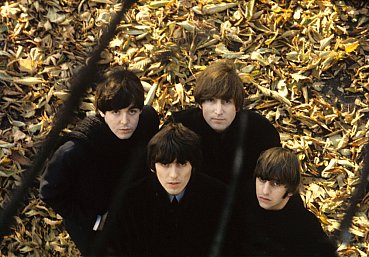
With a cynical title and a great cover photo, the Beatles' fourth album in 20 months was a mixed bag of excellent and different new songs alongside filler pulled from the back-pocket of their Hamburg trousers.
It was a shameless cash-in for the Christmas market – recorded in October but not released until early December – and it was clear the songwriting team of Lennon-McCartney was running out of puff.
But who could blame them?
In the previous year they had gone from British pop stars to a global phenomenon, there had been relentless touring taking them as far afield as Australasia, the film A Hard Day's Night (and a soundtrack of 14 new songs) plus radio and television appearances.
Beatles for Sale was a holding action and not their finest album, but pulled from the shelves at random for this on-going column it reveals depths and digressions which perhaps weren't evident at the time.
The album – and A Hard Day's Night just five months before – came when Lennon was the dominant songwriter and his themes of pride, jealousy, possessiveness and personal pain were evident again in songs like No Reply (“If I were you I'd realise . . . ”), I'm a Loser (“although I laugh and I act like a clown, beneath this mask I am wearing a frown”), Baby's in Black (“she thinks only of him”) and I Don't Want to Spoil the Party (“so I'll go, I would hate my disappointment to show”).
 And when they raided the cupboard Lennon's cover of Chuck Berry's Rock and Roll Music dominates, it arrives after No Reply, I'm a Loser and Baby's in Black which made for four Lennon vocals in a row first up on the album.
And when they raided the cupboard Lennon's cover of Chuck Berry's Rock and Roll Music dominates, it arrives after No Reply, I'm a Loser and Baby's in Black which made for four Lennon vocals in a row first up on the album.
McCartney's contributions seem light in comparison if perfectly pleasant: I'll Follow the Sun is a folksy ballad which he'd written many years before – again showing the paucity of new material they had – and Every Little Thing is positive and catchy, but again lightweight in the comparison with the Lennon material.
His best moment is What You're Doing in which he reveals his own hurts in his relationship with Jane Asher but the arrangement and the jangly Harrison guitar locks it in the places they have been previously.
The rest of the album is covers, some successful (Lennon's throaty yelp and the harmonies on Mr Moonlight, the Lennon-McCartney-Harrison's slippery harmonies on Buddy Holly's Words of Love) and others which are just there to get the track listing up to the standard 14 songs: Ringo's Honey Don't (not even “ah rock on George, one time for me” can salvage it) and Harrison's heavily echoed Everybody's Trying to be My Baby.
McCartney does get under the skin on Kansas City/Hey Hey Hey, tapping that Little Richard spirit which he would bring to I'm Down.
Lennon and McCartney's Eight Days a Week knocked together in the studio is as fine a joyous song as they wrote in the period although Lennon would later be dismissive of it.
But as handclap Beatlesque pop it was actually unusual in the context which was darker and more introvert.
In that regard Beatles For Sale marked the first hints of a break with Beatlemania-pleasing pop and, especially in Lennon's case, a journey into something deeper which would emerge with Help! and You've Got to Hide Your Love Away.
And McCartney with Yesterday and Another Girl on the Help! album.
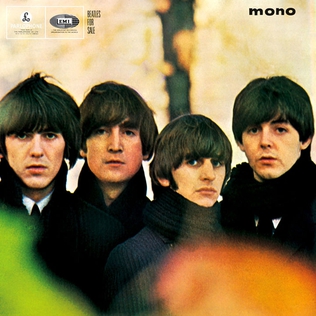 Beatles for Sale – pulled out at random – was a snapshot of a band and personalities in flux, fulfilling the contractual obligation but the main songwriters perhaps realising the road of cheery Merseybeat pop was becoming a dead end.
Beatles for Sale – pulled out at random – was a snapshot of a band and personalities in flux, fulfilling the contractual obligation but the main songwriters perhaps realising the road of cheery Merseybeat pop was becoming a dead end.
A year later almost to the day – after Help! and at the same time as Daytripper/We Can Work It Out – the Beatles released Rubber Soul and their journey to somewhere beyond screaming was complete.
This album goes back on the shelf . . . after the cover has been the frame for a couple of weeks.
.
You can hear this album at Spotify here.
.
Albums considered in this on-going page of essays are pulled from the shelves at random, so we can get the good, the bad or the indifferent from major artists to cult acts and sometimes perverse oddities.

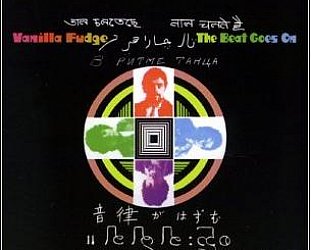

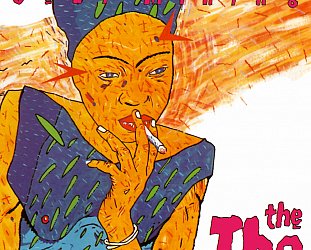
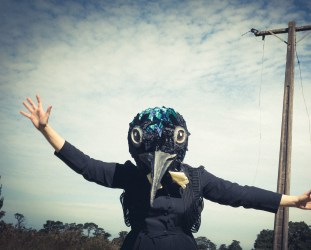
post a comment